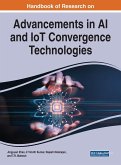This thesis examines how Responsible AI (RAI) governance models influence the adoption of AI-powered IoT devices, considering critical factors such as transparency, fairness, accountability, privacy, and security. As AI systems increasingly interact with human users in data-driven environments, concerns over algorithmic governance, explainability, and regulatory compliance shape public trust and business decision-making. This study explores the intersection of RAI governance, industry implementation, and user perception, using qualitative thematic analysis to draw insights from professional, businesses, and end-users. The findings reveal that trust in AI-powered IoT is contingent upon multiple RAI principles, including explainability, data security, fairness, and ethical oversight, rather than transparency alone. Furthermore, the study highlights the trade-offs between AI innovation, regulatory compliance, and ethical deployment, providing recommendations for businesses to foster RAI-driven AI adoption while ensuring alignment with evolving governance frameworks. It offers practical recommendations for ethical design, regulatory compliance, and user-centric transparency, helping organizations enhance AI adoption and trust while maintaining a competitive edge in the evolving IoT market.
Bitte wählen Sie Ihr Anliegen aus.
Rechnungen
Retourenschein anfordern
Bestellstatus
Storno








